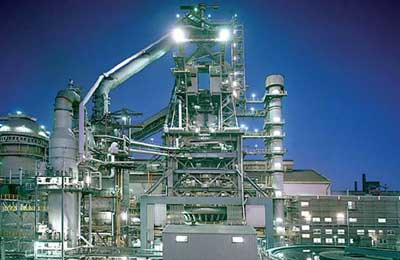
Petchem sector 'to play big role in job creation'
Manama, October 2, 2012
The petrochemicals industry will play a key role in job creation in Bahrain, according to an expert.
The Middle East petrochemicals industry has the potential to reach a capacity between the range of 160 million and 260m tonnes per year by 2025, boosting employment and positively impacting the non-oil and gas sectors, said McKinsey and Company partner Dr Christian Guenther.
"Bahrain has a need for job creation and the petrochemicals industry will play a key role, not just through creation of direct jobs for those working in the petrochemicals industry but also through indirect and induced jobs through suppliers and service providers for the chemicals industry," he told our sister publication, the Gulf Daily News.
The accelerated growth of the region's petrochemicals sector has been the result of decades of investment, he said in his keynote address at the Petchem Arabia 2012 conference.
Bahrain's oil industry, which began more than 80 years ago and the nearly 50-year-old chemicals industry played a significant role, he argued.
Growth in the Middle East's petrochemicals sector has witnessed the greatest rise in terms of capacity, after China.
"GCC countries have reached a capacity share of six per cent," he said. "Ten years ago it was 3 per cent."
The product portfolio of Middle Eastern countries has become much more diverse with around 70 unique chemical products being manufactured in the region.
"This is testament to the growth potential the petrochemicals industry has in this part of the world," he said.
"The impact that the chemicals industry has on the non-oil and gas GDP of the region is significant, especially in the creation of jobs. The chemicals industry is an enabler of jobs for other industries."
However, the industry faced several challenges. Dr Guether predicted that gas will become more scarce and expensive.
"We don't really see any downstream development, we hear a lot of talk about it but we don't really see it," he said.
"In terms of developing the right capabilities, we believe that the GCC has still some way to go."
The Middle East is not the best place to produce chemicals as markets such as North America, Europe and South and East Asia are not in close proximity, he said.
Production of shale gas in North America is unlikely to pose any threat to Middle Eastern producers, he stressed.
Shale gas is natural, which is extracted from shale rock deposits. Interest in these reserves has increased in the US and around the world because of growing concerns over limited natural gas and crude oil supplies from the Middle East.
"Shale gas is important and will have significant impact on players around the globe," said Dr Guenther. "However, it will not harm the industry in this part of the world."
The demand growth for hydrocarbon compound ethylene is in the range of 50m tonnes, while figures for shale-gas based ethylene production is estimated at 10m tonnes.
"Hence, there is still enough space for Middle Eastern players to continue doing what they are doing and maintain healthy margins," he said.
"If we look at the demand growth that is forecast over the next 10 years, Middle East's traditional capacity will be needed to satisfy that demand.
"Shale gas, while very important for the industry, is not going to be a threat to local producers."
The chemicals industry expert also forecast that several regional players will be eyeing joint ventures with international companies to develop the sector further. – TradeArabia News Service







